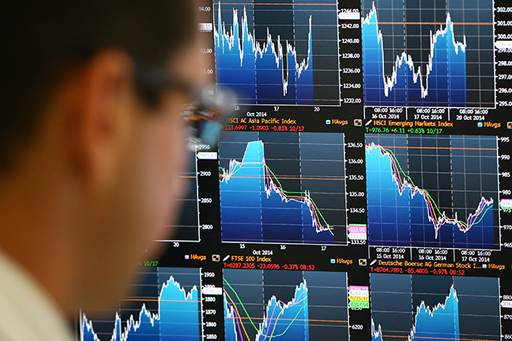1.4 The drivers of equity markets
You have seen the factors that can dictate the prevailing level of interest rates in the economy and by inference the returns on interest-bearing investments.
So what drives the levels of share prices? While you will look at share price determination in detail in Week 2, it is important to get a grasp on the key determinants here at the start of the course.
The first important point is to distinguish between the factors that will generally affect the levels of share prices – typically measured by referring to stock market indices like the FTSE 100 (the index comprising the 100 largest companies listed on the London Stock Exchange) – and those factors that specifically affect a particular, individual, share price.
The key drivers of equity markets are:
- the prevailing and expected level of economic activity, as measured by GDP growth, employment levels and movements in the real incomes of households
- the prevailing and expected level of price inflation
- the prevailing and expected level of interest rates
- the trends in and expectations of the financial performance – particularly profitability – of the firms whose shares comprise the equity markets.
In addition to these core drivers, other factors that impact on equity markets include:
- movements in exchange rates
- changes to taxation – particularly on company profits and dividends paid to shareholders
- changes to commodity prices – particularly oil and gas
- random non-financial events like wars and disease epidemics, which are expected to impact on (global) economic activity.
These factors impact, to greater or lesser extents, on the financial performance and expected future performance of the companies whose shares comprise the equity indices that investments in shares are linked to.
A slowdown in economic activity, perhaps reflected in a weakening in price inflation, can be expected to reduce sales and profits. Under these circumstances, companies may be forced to reduce the dividends paid to shareholders or even pay no dividend at all. The attraction of holding shares, relative to other assets, is then reduced exposing the risk of a fall in share prices. The reverse generally holds as well – growing economic activity and a pickup (provided it is not excessive) in inflation are correlated to higher share prices as companies experience growing sales and profits. The relationship between inflation and the performance of stock markets is, though, complex and hotly debated by analysts.
Modest inflation may be favourable to share prices but higher inflation rates raise the prospect that action will be taken to stem inflationary pressures by raising interest rates and depressing economic activity – a scenario which would not be good for share prices. The other factors listed above also have a role in driving share markets. Higher interest rates are bad news for equities as they presage a decline in economic activity – as do higher commodity prices. If exchange rates move adversely – particularly if the domestic currency strengthens against foreign currencies – the equities can be hit since export sales may be reduced.

